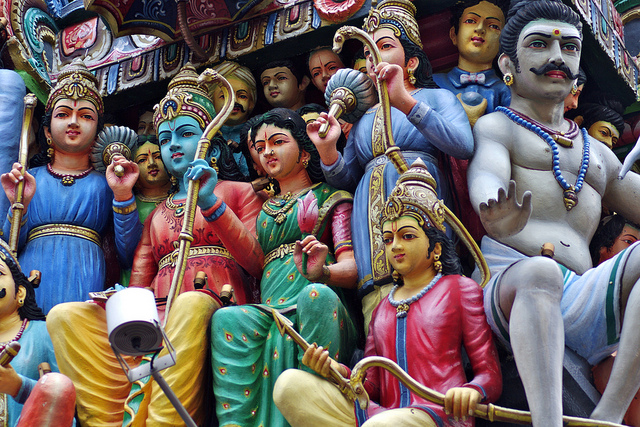Indian culture. The key faculties with this religion certainly are a opinion in reincarnation, regulations of cause and effect, multiple manifestations, and the ultimate need to have freedom from the pattern of start, restoration, and death, i.e. moksha. Through the years, that religion has changed tremendously and result in variations in traditions and techniques, but its fundamental foundations remain the same.
Nowadays, Hinduism is used as a great faith, but in fact, it was not launched as the same. It is really a life style or social exercise that folks started to follow along with and those that followed it came into existence referred to as Hindu. For this reason, till time, number you’ve got had the opportunity to find out the exact year or time of source of the religion.
The other main problem in finding the inception of this lifestyle is that there surely is no single founder of Hinduism. As an example, Christianity was established by Jesus Christ, Buddhism was established by Master Buddha but exactly the same is not true for navratri. While there is no body founder, also the living with this faith can not be related to the beginning of his founder. Due to the above-stated details, it is extremely difficult to find out the origin of Hinduism, but nevertheless you will find few old bits of evidence available, that have been ready to discover the rough time for the living with this practice.
It will be appropriate to state that contemporary Hinduism is especially on the basis of the Vedas. But you can find few customs and traditions practiced by the Hindus, which resemble the Neolithic folks of India. According to the historic evidence, the Neolithic era lasted for about 4000 B.C. Methods like burying or cremation of the dead bodies were followed by the Neolithic people. As well as this, you will find different common practices involving the Hindus and Neolithic persons, like rock praise, animal compromise, phallus praise, ancestral praise, and more. Therefore based on these details, it can be concluded that the source of Hinduism remains as yet not known, but it is thought to be an integral part of or used from the Neolithic lifestyle of the Indian society.
Hinduism is a lot more than an external religion of specific rituals and formalities. Hinduism is certainly a way of life; a religious code. This spiritual signal or Dharma is at the heart of Hinduism and governs the ethical and spiritual techniques of their believers. Through the practise of Yoga proscribed in Hindu scripture adherents may find to attain union with God. As Sri Chinmoy creates: “Know Thyself.” This is what Hinduism stands for. This is the quintessence of Hinduism”
As well as stressing the necessity for self-discovery, yet another significant function of Hinduism is its tolerance. This is tolerance of different religions, different countries and other religious paths. Certainly specific fanatics have ignored this part, but the center of Hinduism is notable for the inclusivity and oneness. “Unity in Selection” is its goal. Hinduism as a religion is probably unique in maybe not stressing the necessity for conversion. The Great Rishis and Saints provide sublime truth that lots of would be the trails to the goal. Sri Chinmoy states:
As well as adopting the religious wisdom of other countries, there’s also good selection within Hinduism itself. The various branches of Hinduism may attract individuals of different temperaments. Like in bhakti yoga the seeker meditates and concentrates on his chosen deity (Be it Sri Krishna or Maha Kali), sensation they’re nearing Lord through the non-public aspect of God. Another journey of Hinduism, mainly the idea of Vedanta, worries the Impersonal facet of God and brings the adherent to see beyond the sphere of subject or “maya “.Another confusion to outsiders is the multiplicity of Gods and Goddesses within Hinduism, however the Hindu scriptures teach they are but the many factors and manifestations of the One Great Lord who embodies both finite and infinite and at the same time frame transcends both. Hinduism cheerfully holds these varied paths.
